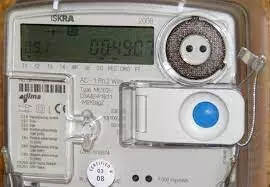How to holy-scam the country of Rs 7.5 lakh cr? Know about Modi govt’s electric smart meters
An entirely different regime of corruption, happening in a smart, discreet manner, is being witnessed under the leadership of Prime Minister Narendra Modi

HYDERABAD: When the BJP-led NDA came to power at the Centre, a part of the credit was attributed to the way the saffron bandwagon cashed in on the UPA regime’s scams to demonise the Congress-led ruling coalition before the 2014 elections.
2008 2G scam Rs 1.76 lakh crores
2010 CWG scam Rs 90 crores
2012 Coal scam Rs 1.86 lakh crores
2012 VVIP chopper scam Rs 3,600 crores
2012 Adarsh housing society scam Rs 1,500 crores
All these scams, that came in handy for the BJP, were orchestrated by misusing public sector units or government entities or by manipulating government contracts. Cases were registered charging private entities and individuals with swindling massive amounts that were supposed to reach the government exchequer. Interestingly, the charges were pressed by the then UPA government itself and courts of that time.
The cumulative cost of these scams could be more or less Rs 3 lakh crores, at least as highlighted vigorously by the BJP. The saffron party used this as a ruse to unfold nationwide protests and agitations with a clamour that the country was riddled with rampant corruption and the UPA government was filled with corrupt people. Naturally, the country’s populace bought the BJP’s accusations, thanks to the lacunae in the government of the time and the ineptness of some of the leaders running it.
It’s a no-brainer that the UPA regime was beset with corruption which became a part of the reason for its eventual downfall. But an entirely different regime of corruption, happening in a smart, discreet manner, is being witnessed under the leadership of Prime Minister Narendra Modi. The smartness lies in the classical safeguards that were embedded into the modus operandi: The Government should not be seen indulging in corruption. And no one at the helm of affairs should be visible, openly devouring any bribe money. And yet, lakhs of crores of rupees will continue to be plundered. The proceeds of this big-time corruption will even reach their designated destinations with minimum fuss..!
Topping the list of such scams is the electric smart meters scheme, which can arguably be termed as the ‘mother of all corruption’ under the present regime. The Union Government has issued a ‘diktat’ that the 25-crore electricity meters existing in the country should be converted into smart meters. It is called a ‘diktat’, not without a reason, because the Centre neither elicited the popular opinion on it nor did it hold any deliberations with the states before announcing its unilateral decision. In a nutshell, the Centre did not care to weigh in the pros and cons of this measure, took no one into confidence and arrived at an arbitrary decision to brazenly impose it on the hapless states.
The smart meters are just a tip of an iceberg: Call it a host of harsh measures being initiated by the NDA government under the guise of power sector reforms in the country. The Centre is unleashing a slew of ‘reformative’ measures like true-up charges and peak-time charges under the ‘time of the day’ pretext. These unilateral decisions will have a direct adverse impact on the wider sections of power sector consumers.
One needs to see the distinction between a process to brainstorm over an intended measure and the one for the implementation of a decision that was already taken unilaterally with no scope for a discussion.
Coming to the smart meters, here is an interesting lowdown on what makes the proposed smart meters the ‘mother of all scams’..! The Reliance Group, a behemoth in Indian trade and industry, has the contract in its kitty to manufacture these meters. The business giant has already installed these meters in some states to bring them into practical utility. The Centre extends a subsidy of Rs 900 with the rider that they should be fitted within the prescribed time-frame. The cumulative expenditure on the meter and its maintenance for a period of five years is estimated to be anywhere between Rs 30,000-35,000. Mind you, these are the rates, as fixed by the power distribution entities. The replacement of the country’s 25 crore electric meters with smart meters would mean a total expenditure hovering anywhere between Rs 7.5 lakh crores and Rs 8.75 lakh crores.
And here is the harsh reality: It is not the Centre but it is the people or, more precisely, the power consumers who will have to cough up these exorbitant conversion costs for their new smart meters. Even if some states, like Andhra Pradesh, come forward to bear these costs, the burden will eventually be transferred through indirect means to the general public. With not a penny to pay for this, the Centre emerges as the big winner in a ‘smart game’.
This is not an acrimony of the political rivals. Power sector experts warn that the Centre’s smart meter reforms were solely intended to divest a staggering stack of public money to the Reliance Group in a manner that is not discerned by the naked eye. The whole exercise will hardly be reminiscent of a scam since there was no involvement of funds from the government coffers. Precisely for this factor, it is hardly being viewed as a scandal.
For better public consumption, Reliance stands to gain a business that is worth over Rs 7.5 lakh crores. This is all thanks to the Narendra Modi-led NDA government at the Centre whose ‘coercive steps’ are making the power consumers convert to smart meters with no liberty to exercise their own discretion. If it is only about manufacturing the smart meters, then the private giant stands to gain very little from it. Beyond manufacturing, Reliance has also bagged the contract for the maintenance of these meters, where it stands to gain the most. The company has already revealed details of its larger role in the whole process, right from manufacturing to maintenance.
Who stands to benefit from these smart meters? The answer for this too is a no-brainer. Without the scope for second-guessing, the biggest beneficiaries are going to be the Adani Group and the new private players taking their baby steps in the power generation business. The Adani Group owns two entities, Adani Power and Adani Green Energy. The group claims that they are the biggest player in the private sector when it comes to thermal, solar and wind power generation in the country.
As part of the new electricity act, the Centre has laid out a condition that green energy should be a part of all power purchase deals. However, there is ambiguity since this clause does not specify if this should be up to 30 percent or 50 percent. The power sector experts have no qualms in letting the cat out of the bag in this context. They say in no uncertain terms that the only private player to gain most from this ambiguity is the Adani Group.
On top of this, the Centre has clipped the powers of DISCOMs that function under the control of the state governments. As a result, anyone is free to distribute power with no administrative hurdles to restrain them. The installation of prepaid meters will enable the consumers to opt for a provider of their choice for their power purchase. But the fact is that no private entity is likely to install its own power lines. To circumvent this cumbersome and highly expensive proposition, the private companies will rely on the existing power supply lines.
In simple terms, the Centre has designed the whole idea as a lucrative business model for the private entities and also preempted in the process the scope for any losses. The new electricity act appears to be working more in favour of the private firms and at the expense of the DISCOMs. It seems almost as if the DISCOMs of the state will have to bear the losses while the profits will go entirely to the private entities.
Also, the act is designed in such a manner that the electricity supply from the national, regional and state-level power grids will not be released to the DISCOMs if the payments were not made as per the agreement to the private companies or say the Adanis and the likes. The DISCOMs of the states frequently default on timely payments, for a variety of reasons. And it is needless to say who will suffer the most and for whose benefit in this worst-case scenario. This is one of the clauses in the new electricity act that was designed to favour the private power companies in a smart trade, unveiled in the name of prepaid smart meters.



